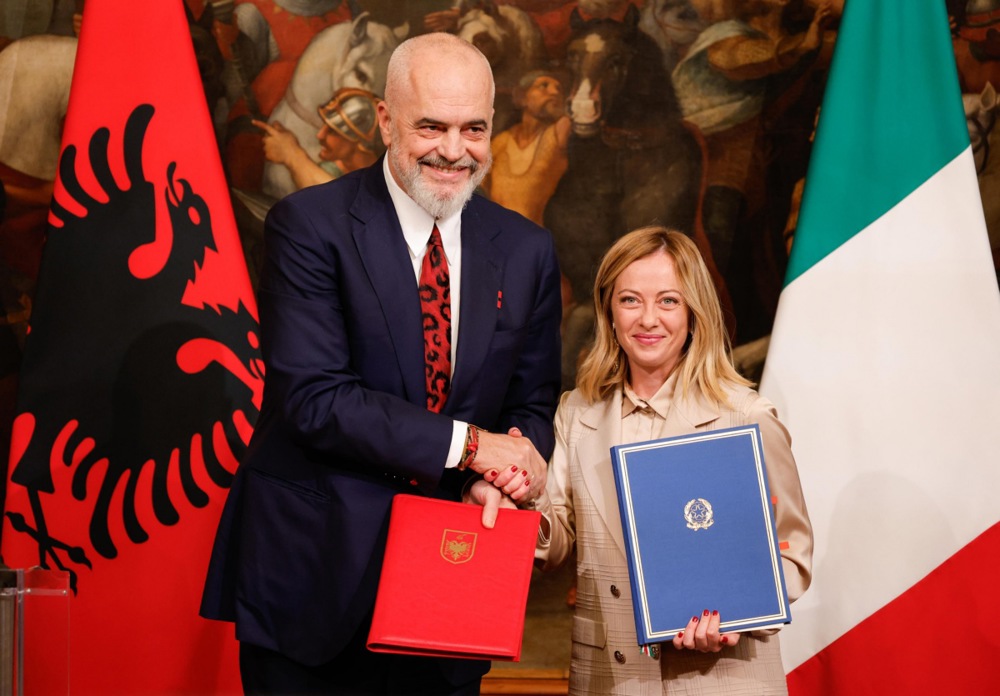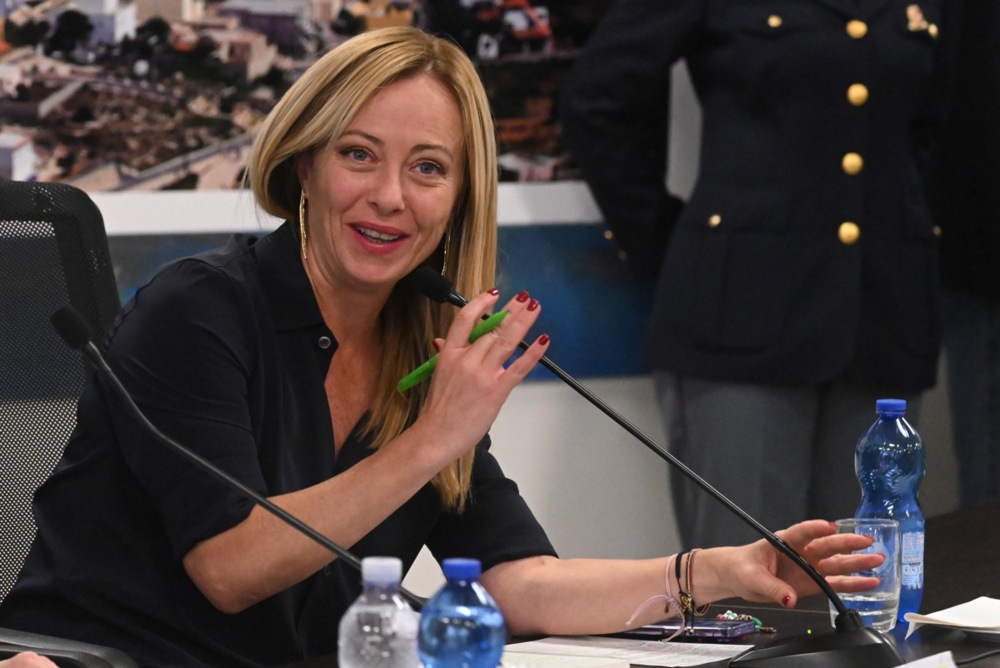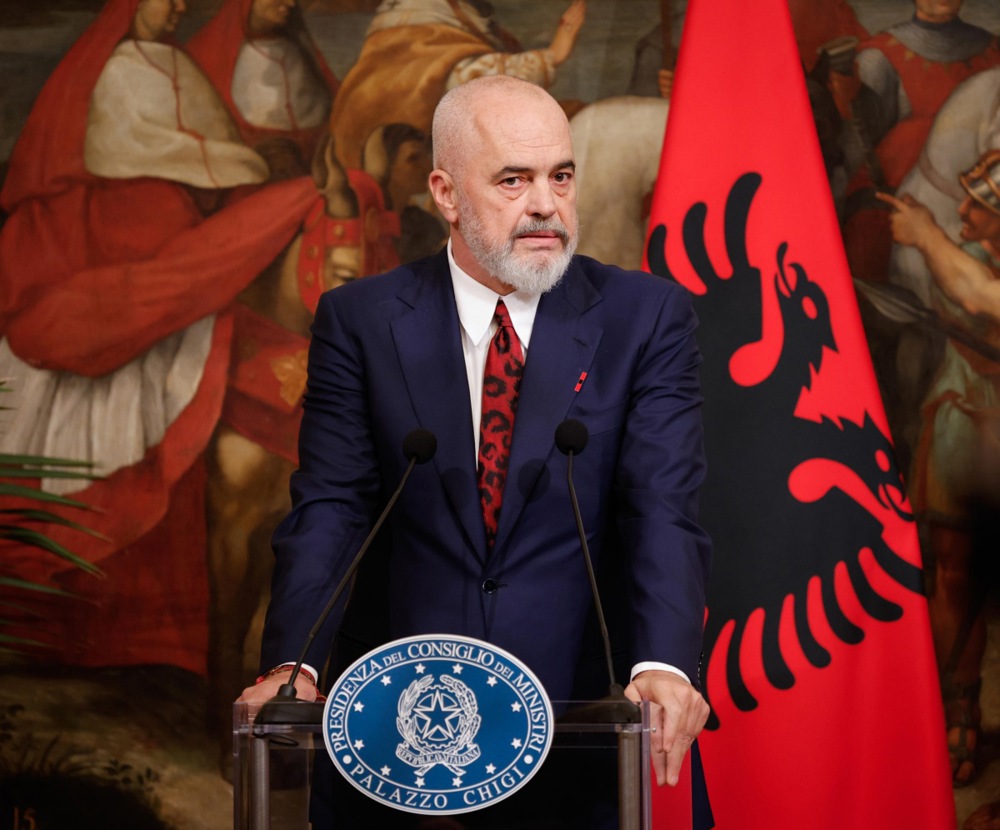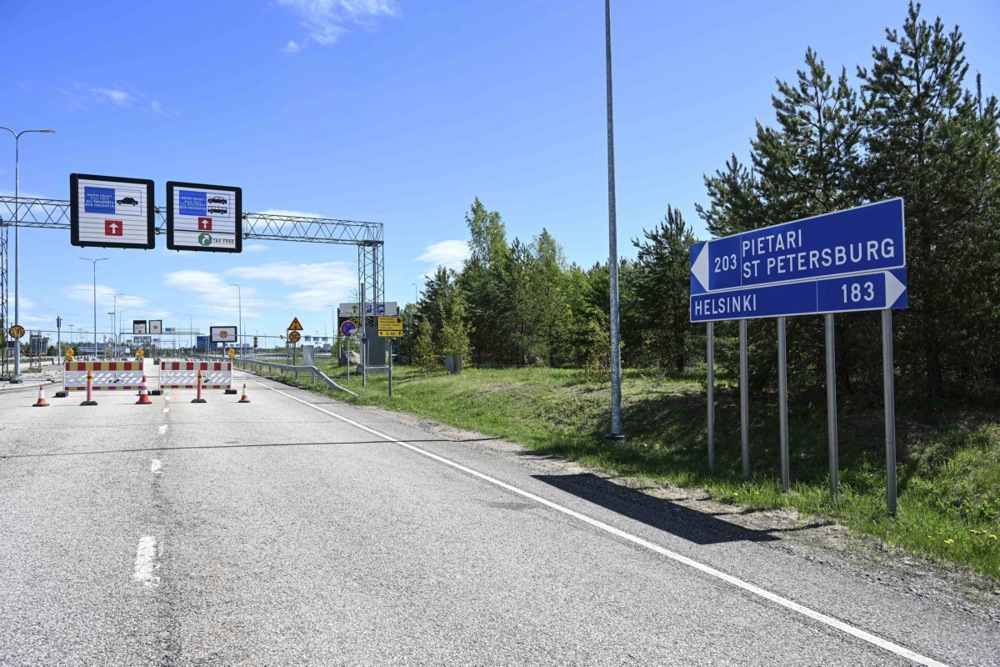Italy’s plans to set up detention camps in Albania for migrants picked up at sea has been delayed.
Italian Prime Minister Giorgia Meloni had set August 1 as the start date for her project, aiming to place 1,000 people in two shelters and to increase those numbers over time.
Italian ambassador to Tirana, Fabrizzio Buçi, stated on August 1 that the opening of the camps had been postponed for several weeks.
A few days before, cabinet undersecretary Alfredo Mantovano – a close Meloni aide – was also cited by Italian media as saying the facilities’ inauguration was delayed by a few weeks, according to Reuters.
At the time of writing, a new date for the official opening has not been given.
Intensive construction works are reportedly still ongoing.
An anonymous source told Reuters the delays were partly due to hot weather in Albania, which was limiting working hours for builders.
In February, the Italian Government had said it aimed to have the camps functioning by spring.
When opened, the camps will house migrants picked up in international waters, excluding women, children and individuals considered vulnerable.
While at these centres, migrants can apply for asylum in Italy. Those whose applications are rejected will be repatriated to countries deemed safe for return.
European Commission President Ursula von der Leyen has endorsed the Italian plans and said they were “an example of out-of-the-box thinking, based on fair sharing of responsibilities with third countries in line with obligations under EU and international law”.
German interior minister Nancy Faeser has expressed interest in how Italy aims to process more asylum application procedures in Albania. https://t.co/0ZK5xFZZCN
— Brussels Signal (@brusselssignal) May 27, 2024
Under the agreement, Albania is expected to host up to 3,000 migrants a month.
Italy has said it wanted to house up to 36,000 asylum seekers in Shen Gjin, an Albanian port-city, and at Gjadër in a decommissioned military base.
The migrants will not be able to move beyond the assigned areas and Rome said it would administer and fund the entire project.
Loredana Leo, a lawyer based in Rome and a member of Associazione Per Gli Studi Giuridici Sull’Immigrazione (ASGI), a group of independent lawyers and scholars focused on migrant rights, told InfoMigrants in June: “The construction, particularly at the second site of Gjadër, was still ongoing.”
She had claimed it would prove “impossible” to finish the centres by August.
The agreement between Italy and Albania aims to legalise the automatic detention of asylum seekers and the forcible return of those refused, with the explicit intention of discouraging migrant sea-crossings.
Albania’s main opposition, the Democratic Party, challenged the plans in the country’s Constitutional Court. It argued they were against the Constitution by ceding territorial and State power on Albanian soil to another country.
The court rejected the claims and gave the go-ahead for the deal at the beginning of this year.
Human rights and open-borders activists have claimed the Italian move would make it harder to process asylum requests and appeals.
“It is shameful that, despite all the criticism and concerns raised by human-rights organisations, the Italian Government has decided to go ahead with this agreement. Not only is the plan incredibly harmful, but it is also illegal,” alleged Eve Geddie, Director of Amnesy International’s European Institution Office.
“This cruel experiment is a stain on the Italian Government. In practice, it will only affect racialised … people and divert attention and funds from policies that could really strengthen asylum systems, help people in need of safety and benefit the communities that host them,” she added.
The Italian left-wing opposition has criticised the cost of the co-operation between Italy and Albania as too high for too few results.
The price tag for the centres is reportedly €670 million over five years.
Senator Andrea De Priamo, a member of Meloni’s Brothers of Italy party, noted that illegal immigration to Italy had declined by 63 per cent compared to 2023 already.
“The numerous agreements with the States bordering the Mediterranean or along the routes of migratory flows are reaping the first fruits, ” he said.
VIDEO: Italy surprises with deal to send asylum seekers to Albania.
Read more at https://t.co/2toO52Zsoy pic.twitter.com/yDylSDGiAM
— Brussels Signal (@brusselssignal) November 8, 2023





